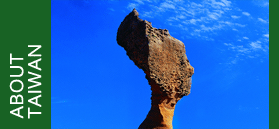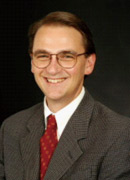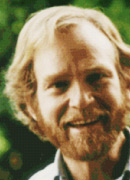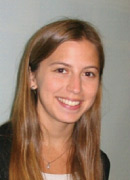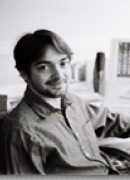| |

Evolutionary Individual-Based Models and Their Applications in
Problem Solving and Games
Abstract:
Evolutionary computation is a machine learning approach that seeks inspiration from nature's processes of natural selection and variation. The field of evolutionary computation is broad, and encompasses many different inspirations from nature that include modeling at the species, individual, and genetic levels. Theoretical results for the learning properties of these algorithms have been offered, although some have been reanalyzed and corrected within the last decade. Evolutionary individual-based models are simulations that incorporate individual purpose-driven agents that are subject to natural selection and variation. It is possible to employ these models to solve problems in industry and other disciplines, but also to potentially gain insight in ecologies and animal behavior. In particular, aspects of evolutionary game theory can be compared to evolutionary individual-based modeling. The results from these two approaches are often quite different. Several results will be offered that highlight these differences. It is of interest to determine which may have greater fidelity in predicting aspects of the real world.
Bio:
Dr. David Fogel is president of Natural Selection, Inc., a recognized leading firm in the area of bio-inspired problem solving. He is also CEO of Natural Selection Financial, Inc., a registered investment advisor company that uses evolutionary algorithms and computational intelligence for improving financial market forecasting. Dr. Fogel received the Ph.D. in engineering sciences (systems science) from UCSD in 1992. He has an honorary doctorate from the University of Pretoria (2008). Dr. Fogel was president of the IEEE Computational Intelligence Society (2008-2009), founding editor-in-chief of the IEEE Transactions on Evolutionary Computation (1996-2002), editor-in-chief of BioSystems (2000-2008), and has authored over 200 publications and 6 books, including Blondie24: Playing at the Edge of AI.
Dr. Fogel is an IEEE fellow and has received several honors and awards, including the 2002 Sigma Xi Southwest Region Young Investigator Award, the 2003 Sigma Xi San Diego Section Distinguished Scientist Award, the 2003 SPIE Computational Intelligence Pioneer Award, the 2004 IEEE Kiyo Tomiyasu Technical Field Award, the 2007 IEEE Computational Intelligence Society Meritorious Service Award, and most recently the 2008 IEEE Computational Intelligence Society Evolutionary Computation Pioneer Award.

Beyond Nash Equilibrium: Solution Concepts for the 21st Century
Abstract:
Nash equilibrium is the most commonly-used notion of equilibrium in game theory. However, it suffers from numerous problems. Some are well known in the game theory community; for example, the Nash equilibrium of repeated prisoner's dilemma is neither normatively nor descriptively reasonable. However, new problems arise when considering Nash equilibrium from a computer science perspective: for example, Nash equilibrium is not robust (it does not tolerate "faulty" or "unexpected" behavior), it does not deal with coalitions, it does not take computation cost into account, and it does not deal with cases where players are not aware of all aspects of the game. In this talk, I discuss solution concepts that try to address these shortcomings of Nash equilibrium. This talk represents joint work with various collaborators, including Ittai Abraham, Danny Dolev, Rica Gonen, Rafael Pass, and Leandro Rego. No background in game theory will be presumed.
Bio:
Joseph Halpern received a B.Sc. in mathematics from the University of Toronto in 1975 and a Ph.D. in mathematics from Harvard in 1981. In between, he spent two years as the head of the Mathematics Department at Bawku Secondary School, in Ghana. After a year as a visiting scientist at MIT, he joined the IBM Almaden Research Center in 1982, where he remained until 1996, also serving as a consulting professor at Stanford. In 1996, he joined the CS Department at Cornell, where is now department chair.
Halpern's major research interests are in reasoning about knowledge and uncertainty, security, distributed computation, decision theory, and game theory. Together with his former student, Yoram Moses, he pioneered the approach of applying reasoning about knowledge to analyzing distributed protocols and multi-agent systems. He has coauthored 6 patents, two books ("Reasoning About Knowledge" and “Reasoning about Uncertainty"), and over 300 technical publications.
Halpern is a Fellow of the AAAI, the ACM, and the AAAS. Among other awards, he received the Dijkstra Prize in 2009, the ACM/AAAI Newell Award in 2008, the Godel Prize in 1997, was a Guggenheim Fellow in 2001-02, and a Fulbright Fellow in 2001-02 and 2009-10. Two of his papers have won best-paper prizes at IJCAI (1985 and 1991), and another won one at the Knowledge Representation and Reasoning Conference (2006). He was editor-in-chief of the Journal of the ACM (1997-2003) and has been program chair of a number of conferences, including the Symposium on Theory in Computing (STOC), Logic in Computer Science (LICS), Uncertainty in AI (UAI), Principles of Distributed Computing (PODC), and Theoretical Aspects of Rationality and Knowledge (TARK).

Continuous Visual Object Category Learning
Abstract:
How should an agent learn about visual objects? Object recognition techniques typically follow a one-time, one-pass learning pipeline: given some manually labeled exemplars, they train a model per category, and then can identify those same objects in novel images. While effective on prepared datasets, the strategy is not scalable and assumes a fixed category domain. We instead consider visual learning as a continuous process, in which the algorithm constantly analyzes unlabeled image data in order to both strengthen and expand its set of category models. In this talk, I present an approach that actively seeks human annotators’ help when it is most needed, and autonomously discovers novel objects by mining new data. I show how to address important technical challenges in large-scale active visual learning, such as accounting for the information/effort tradeoff inherent to annotation requests, surveying massive unlabeled data pools, and targeting questions to many annotators working in parallel. Finally, I show how the system can more effectively discover novel objects in the context of those that were previously taught, pacing itself according to the predicted difficulty of the tasks. The proposed techniques yield state-of-the-art object detection results, and offer a new view of visual object learning as an interactive and ongoing process.
This talk describes work with Yong Jae Lee and Sudheendra Vijayanarasimhan.
Bio:
Kristen Grauman is the Clare Boothe Luce Assistant Professor in the Department of Computer Science at the University of Texas at Austin. Before joining UT-Austin in 2007, she received a PhD in computer science from MIT, and a BA in computer science from Boston College. Her research in computer vision and machine learning focuses on visual search and object recognition. Work with her co-authors on large-scale visual search for learned metrics received the Best Student Paper Award at the IEEE Conference on Computer Vision and Pattern Recognition (CVPR) in 2008. Grauman serves regularly on the program committees for computer vision conferences and is a member of the editorial board for the International Journal of Computer Vision. She is a Microsoft Research New Faculty Fellow, and a recipient of an NSF CAREER award and the Howes Scholar Award in Computational Science.

Developmental constraints for open-ended robot learning
Abstract:
Developmental robotics aim at building robots which, once "out of the factory" and in the "wild" of the real-world, should be capable of learning cumulatively an open-ended repertoire of new skills, both through self-experimentation and social interaction with humans. A major challenge that has to be faced is that the sensorimotor spaces encountered by such robots, including the interaction of their body with novel external objects and persons, are high-volume, high-dimensional, unbounded and partially unlearnable. If one wants robots to be capable of efficient learning in such spaces, one must take inspiration from infant development which shows the importance of various families of developmental constraints. In this talk, I will review several of these constraints, including mechanisms for curiosity-driven learning, maturation, sensorimotor primitives, joint attention and joint intention in social guidance, self-organization, and morphological computation, and show how they can allow to transform apparently daunting machine learning problems into much more tractable problems.
Bio:
Dr. Pierre-Yves Oudeyer is responsible of the FLOWERS team at INRIA. Before, he has been a permanent researcher in Sony Computer Science Laboratory for 8 years (1999-2007). He studied theoretical computer science at Ecole Normale Superieure in Lyon, and received his Ph.D. degree in artificial intelligence from the University Paris VI, France. After working on computational models of language evolution, he is now working on developmental and social robotics, focusing on sensorimotor development, language acquisition and life-long learning in robots. Strongly inspired by infant development, the mechanisms he studies include artificial curiosity, intrinsic motivation, the role of morphology in learning motor control, human-robot interfaces, joint attention and joint intentional understanding, and imitation learning. He has published a book, more than 80 papers in international journals and conferences, holds 8 patents, gave several invited keynote lectures in international conferences, and received several prizes for his work in developmental robotics and on the origins of language. In particular, he is laureate of the ERC Starting Grant EXPLORERS. He is editor of the IEEE CIS Newsletter on Autonomous Mental Development, and associate editor of IEEE Transactions on Autonomous Mental Development, Frontiers in Neurorobotics, and of the International Journal of Social Robotics Web:
http://www.pyoudeyer.com and http://flowers.inria.fr |
|


